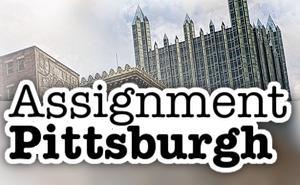Senate and House Republicans released spreadsheets Tuesday afternoon detailing their negotiated $27.7 billion spending plan, and said the House Appropriations Committee would vote on the amended plan Wednesday morning, but some budget matters are still fuzzy.
The governor’s desired 10% cut to seven county-run human services programs is a go. Whether or not those programs will be funded with a single block grant, like Governor Corbett wants, remains to be seen. Spokesmen for the House and Senate Republicans said the Human Services Block Grant proposal is still under discussion.
Public schools would get almost $50 million more than last year under the plan, money that’s slated to go toward distressed school districts, but further details about a program designed specifically to help distressed school districts and issue them no-interest loans haven’t yet been finalized.
Other education-related bills the Governor Corbett wants to see passed with the budget are the subject of negotiations behind closed doors.
Senate Education Committee Chairman Jeff Piccola (R-Dauphin) said private talks are a necessary part of the budget process. “You can’t be bandying about these things back and forth publicly until you’ve agreed what you’re going to put in the different amendments, or we’d be here until Christmas trying to figure all this out,” he said.
Of the various education proposals being negotiated, the one Piccola’s most optimistic about would base part of teachers’ job evaluations on student performance. He called the plan “pretty well a done deal” Tuesday afternoon.
Piccola was more circumspect talking about the progress on other plans to change charter school oversight and create a tax credit to fund scholarships for students in the lowest-performing school districts.
About charter school oversight, Piccola said lawmakers are still trying to meet each other halfway. On one extreme, there are some who would allow the state to bypass school districts to create charter schools. On the other, there are those who want to keep school districts in control of approving new charters.
“There’s an infinite number of variations that you could phase-in,” said Piccola. “What we’re doing now is trying to narrow our differences so that we can come up with some kind of approach to state authorization.”
Talks continue over the proposed spin-off of the Educational Improvement Tax Credit, dubbed EITC 2.0. It would allow businesses to fund scholarships specifically for students in the lowest-performing school districts.
“If it’s designed in a way that’s able to effectively deliver choice assistance to low-income students that are attending failing and low-income schools, I think we can get that done,” said Piccola.
Republicans’ budget spreadsheets also show that Accountability Block Grants, zeroed out in the governor’s proposal, would be restored to $100 million. The grants help school districts pay for early education programs, like full-day kindergarten, and the three state-related universities and the state-system schools threatened with deep cuts would see their funding restored to last year’s levels.
A state-funded cash grant program within the Department of Public Welfare would be eliminated under the Republicans’ budget, as Governor Corbett proposed in February.






